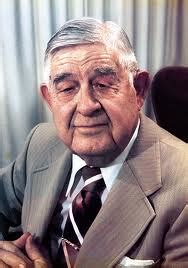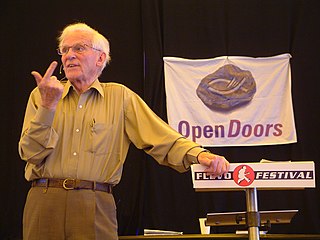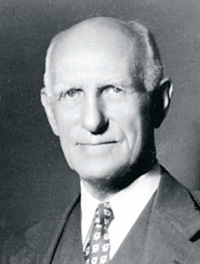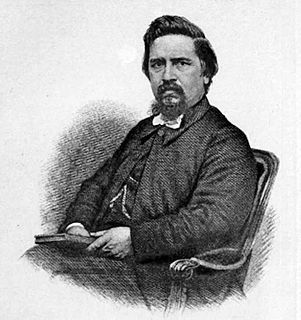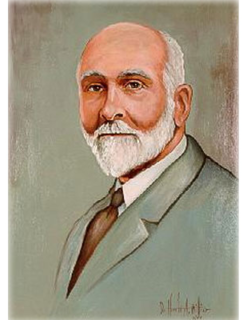A Quote by Norman Anderson
This is the unique element in the gospel, which tells us that what we could never do, God has done. We cannot climb up to heaven to discover God, but God has come down to earth, in the person of his Son, to reveal himself to us in the only way we could really understand: in terms of a human life.
Related Quotes
The gospel is saying that, what man cannot do in order to be accepted with God, this God Himself has done for us in the person of Jesus Christ. To be acceptable to God we must present to God a life of perfect and unceasing obedience to his will. The gospel declares that Jesus has done this for us. For God to be righteous he must deal with our sin. This also he has done for us in Jesus. The holy law of God was lived out perfectly for us by Christ, and its penalty was paid perfectly for us by Christ. The living and dying of Christ for us, and this alone is the basis of our acceptance with God
The Son of God did not want to be seen and found in heaven. Therefore he descended from heaven into this humility and came to us in our flesh, laid himself into the womb of his mother and into the manger and went on to the cross. This was the ladder that he placed on earth so that we might ascend to God on it. This is the way you must take.
The answer to our cry which God gave in Jesus infinitely transcends our expectations, achieving a solidarity which cannot be human alone, but divine. Only the God who is love, and the love which is God, could choose to save us in this way, which is certainly the lengthiest way, yet the way which respects the truth about him and about us: the way of reconciliation, dialogue and cooperation.
Jesus came to reveal God to us. He is the defining word on God—on what the heart of God is truly like, on what God is up to in the world, and on what God is up to in your life. An intimate encounter with Jesus is the most transforming experience of human existence. To know him as he is, is to come home. To have his life, joy, love, and presence cannot be compared. A true knowledge of Jesus is our greatest need and our greatest happiness. To be mistaken about him is the saddest mistake of all.
God intends us to be like gods, he intends us to be like the Son of God. ... God has conceived in His heart of a plan to make a race of men that would live like gods on the Earth. He has conceived in His heart to have Sons that would live like His Son, the Lord Jesus lived... That we were to be on earth the extension and manifestation of God's life in heaven.
We cannot find God without God. We cannot reach God without God. We cannot satisfy God without God - which is another way of saying that all our seeking will fall short unless God starts and finishes the search. The decisive part of our seeking is not our human ascent to God, but His descent to us. Without God's descent there is no human ascent. The secret of the quest lies not in our brilliance but in His grace.
And then the dear Lord will take us to the new earth, surrounded by the new Heaven, and the holy New Jerusalem will come down from God out of Heaven. Then we will have an end of pain and sorrow and crying and death. All these, thank God, will be forever done! And then God Himself will wipe away our tears.
The story of the gospel is so much better than the legal model suggests. It tells us that we are created as God's partners, not God's enemies. Sin does a lot of damage to that partnership - it disables us, it discourages us, it disturbs us - but it never destroys the bond that exists between God and humanity.
Just supposing for the sake of the argument that there is a being of such a kind as that He may with any propriety be called "God", it does seem antecedently very improbable that weak and limited creatures of a day, such as we are, should discover Him by our own efforts.... who could be discovered in that way would hardly be worth discovering. I think we ought to stick to that principle rather firmly. I think we ought to be rather sure that we cannot know God unless God has been pleased to reveal Himself to us.
Only when we see that the way of God's law is absolutely inflexible will we see that God's grace is absolutely indispensable. A high view of the law reminds us that God accepts us on the basis of Christ's perfection, not our progress. Grace, properly understood, is the movement of a holy God toward an unholy people. He doesn't cheapen the law or ease its requirements. He fulfills them in his Son, who then gives his righteousness to us. That's the gospel. Pure and simple.
There are two gods. The god our teachers teach us about, and the God who teaches us. The god about whom people usually talk, and the God who talks to us. The god we learn to fear, and the God who speaks to us of mercy. The god who is somewhere up on high, and the God who is here in our daily lives. The god who demands punishment, and the God who forgives us our trespasses. The god who threatens us with the torments of Hell, and the God who shows us the true path.
There are two gods. A god who casts us off because of our sins, and a God who calls to us with His love.
It would be the greatest delight of the seraphs to pile up sand on the seashore or to pull weeds in a garden for all eternity, if they found out such was God's will. Our Lord himself teaches us to ask to do the will of God on earth as the saints do it in heaven: "Thy will be done on earth as it is in heaven."
The law of giving and receiving is fundamental, and relates just as much to God as it does to us. As we go through the door of giving ourselves to God in worship we find that God comes through that same door and gives Himself to us. God's insistence that we worship Him is not really a demand at all but an offer-an offer to share Himself with us. When God asks us to worship Him, He is asking us to fulfill the deepest longing in Himself, which is His passionate desire to give Himself to us. It is what Martin Luther called "the joyful exchange."








